The Last Voyage of the Demeter makes an atmospheric meal out of a few pages of Bram Stoker’s Dracula, and while critics may have found the film lacking, I found that it gave me pretty much exactly what I wanted from this movie. Those few pages comprise the “Captain’s Log” describing the harrowing events that befall the crew of the Demeter as they unwittingly transport Dracula from Transylvania to London. The ship arrives with not a living soul onboard, and all we can glean from the log is that Dracula must have picked them off one by one.
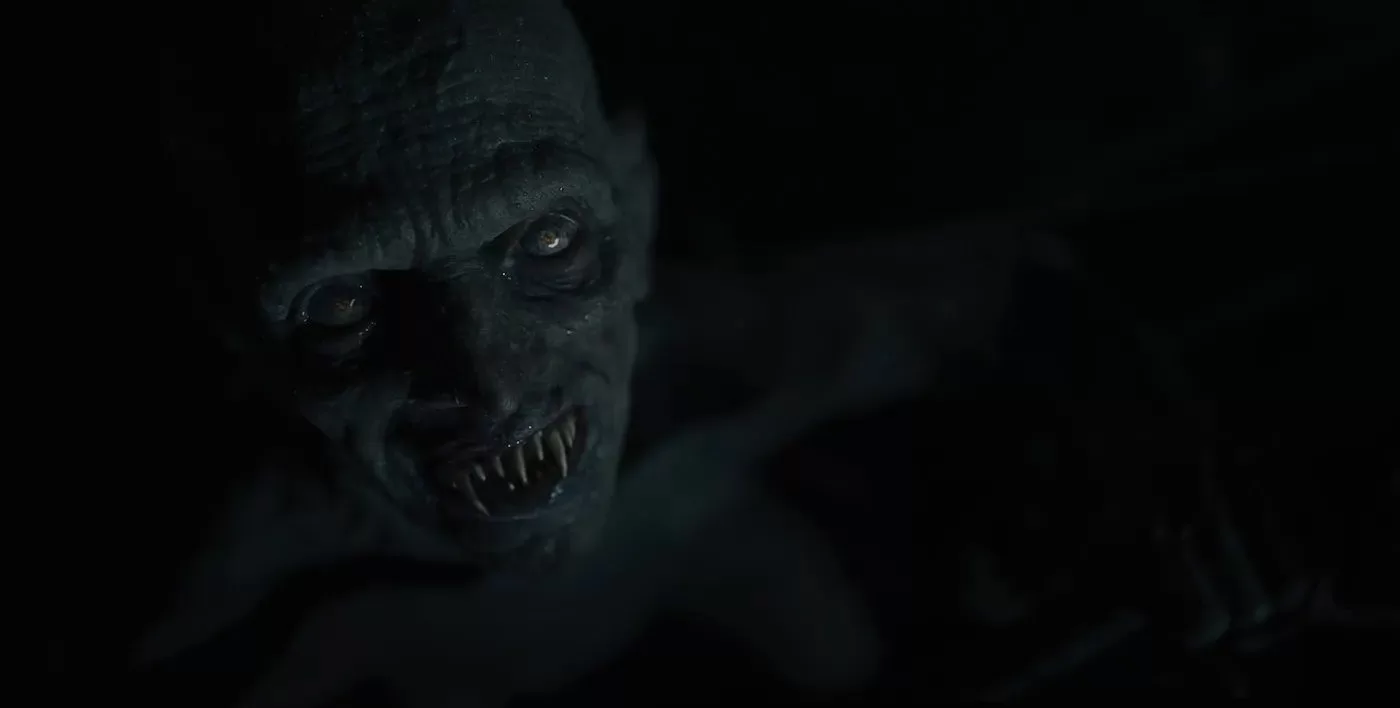
There’s a lesser version of this film that simply takes this premise and goes for the cheap thrills of a Blumhouse-style supernatural slasher. But director André Øvredal, who’s displayed a knack for delivering eerie and unnerving tension surrounding supernatural creatures in films such as Trollhunter, The Autopsy of Jane Doe, and Scary Stories to Tell in the Dark, crafts a compelling period piece about hapless sailors encountering the existence of evil for the first time. Escape Room screenwriter Bragi Schut Jr. originally wrote the film as “Alien on a boat” over twenty years ago, and it passed through many hands before the final draft by Bullet Train screenwriter Zak Olkewicz, but it still maintains that “Alien on a boat” vibe, down to the fact that the crew is motivated by money to continue to their destination without delay in order to receive their sizable bonuses.
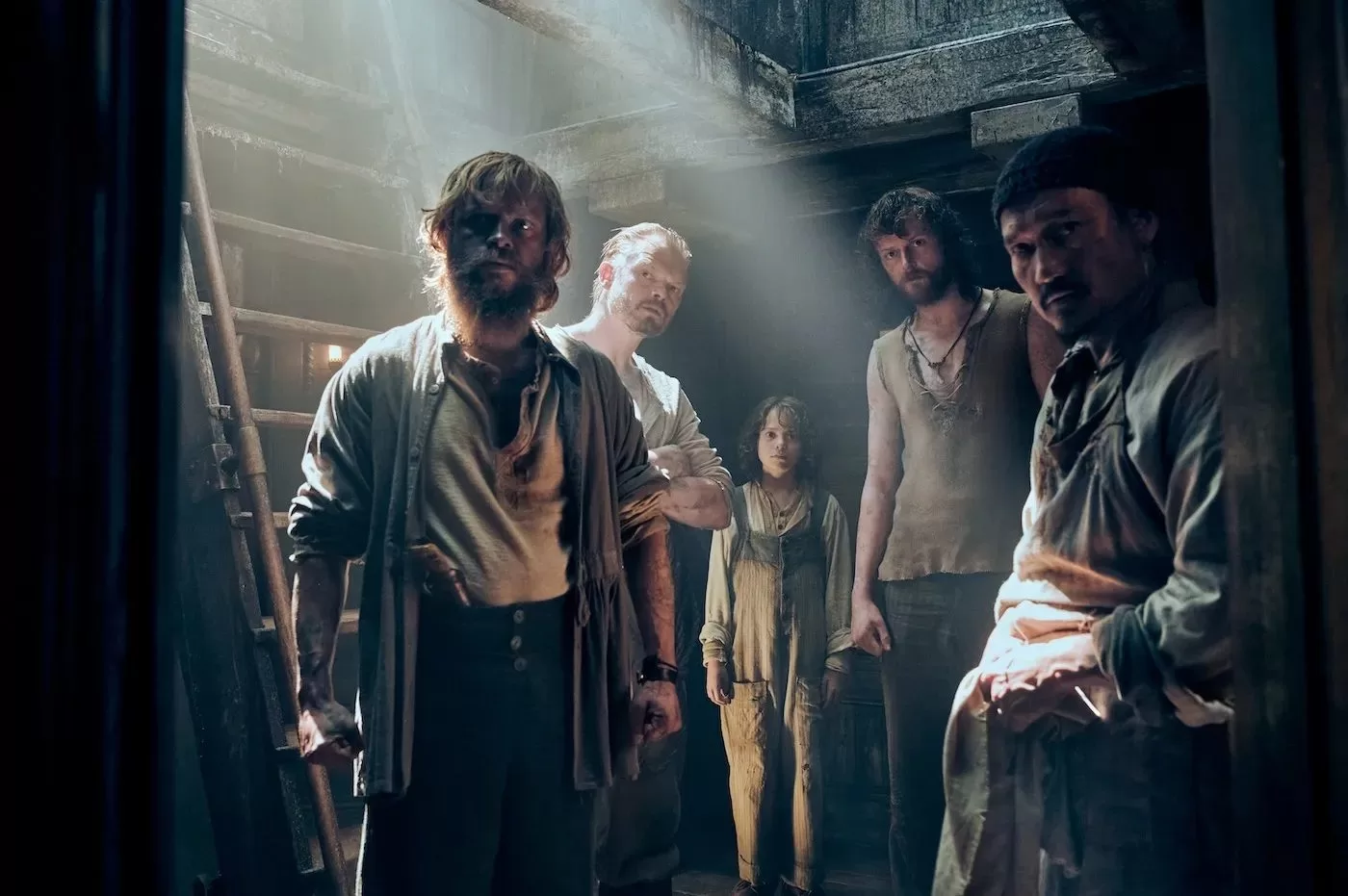
It’s a small crew, and the minor crew members don’t make a huge impression, but the main cast certainly do. Captain Elliot (Liam Cunningham essentially playing an AU Davos Seaworth) has declared this to be his final voyage before retirement, and he tells his first mate, Wojcheck (David Dastmalchian, the closest thing the film has to a slimy human antagonist), that the ship will be his afterward, not knowing the title of the movie.
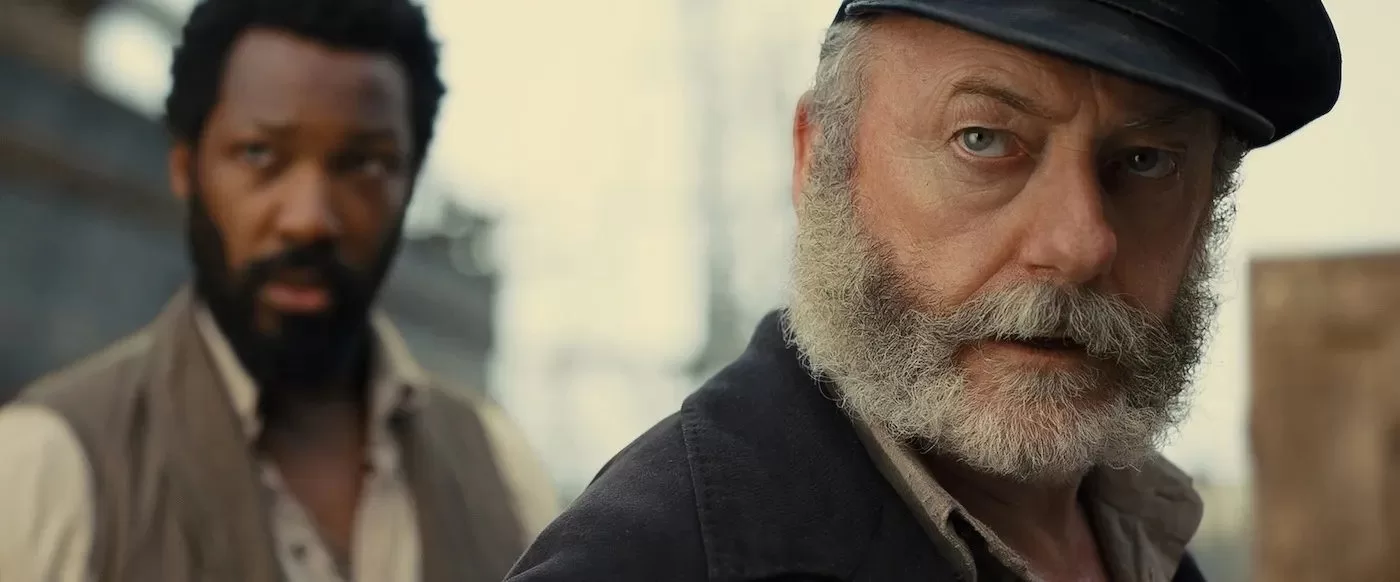
But even though the film is based on the Captain’s Log, which we do hear bits of throughout the film to chart our progress, the Captain is not our protagonist. That would be Clemens, a Black doctor in 1897 with something to prove, and Corey Hawkins makes for a very likable hero thanks to the intelligence and compassion he exudes that set him apart from the rest of the crew. And surprise guest Anna, played by The Nightingale‘s Aisling Franciosi, provides the necessary spooky background on Dracula while also being a sympathetic character in her own right.
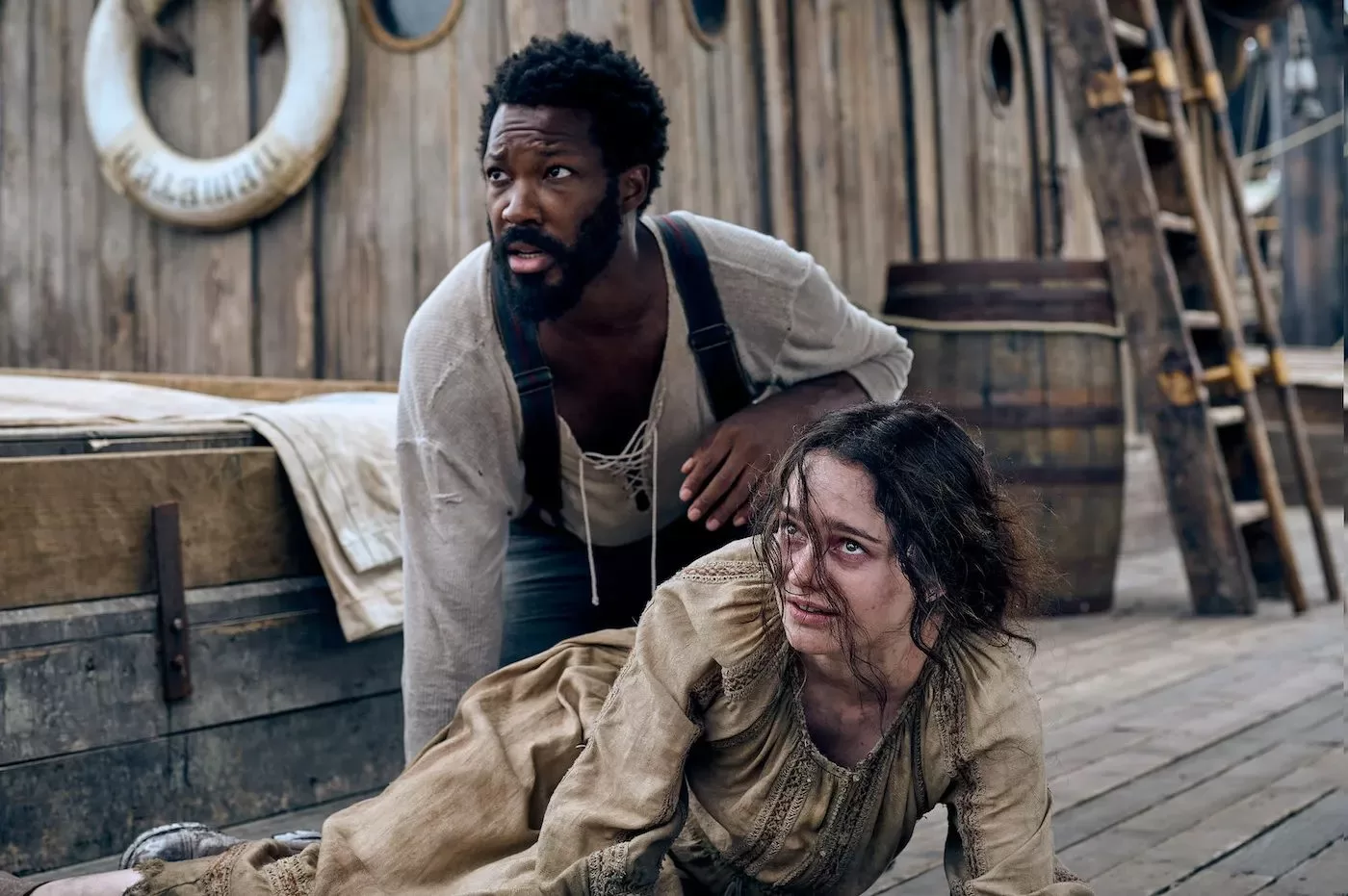
But you know what this movie needs? A cute kid, you need a cute kid to be the heart of the film, right. So here’s Toby, played by C’mon, C’mon‘s Woody Norman, and Toby’s an adorable little moppet who cheerfully declares that he’s seen a dead person before, unaware of how many more dead people he’s gonna see on this journey.
I love seeing familiar stories from different perspectives, so I appreciated how much this film puts us in the shoes of this crew who has no idea they are a tiny piece of one of the most iconic horror stories of all time and resists the urge to winky-wink at the audience the whole time. Instead, it treats the story with utter seriousness—some might say humorlessness, though there are occasional flashes of light—and plunges us into this horrifying situation. While I wasn’t a fan of cinematographer Tom Stern’s obsession with close-ups on actors’ faces for what seemed like ninety percent of scenes—presumably to induce a sense of claustrophobia on this ship—I admired his ability to shoot an extremely gray movie with many night scenes, rain scenes, and rainy night scenes in which a gray monster attacks with visual clarity.
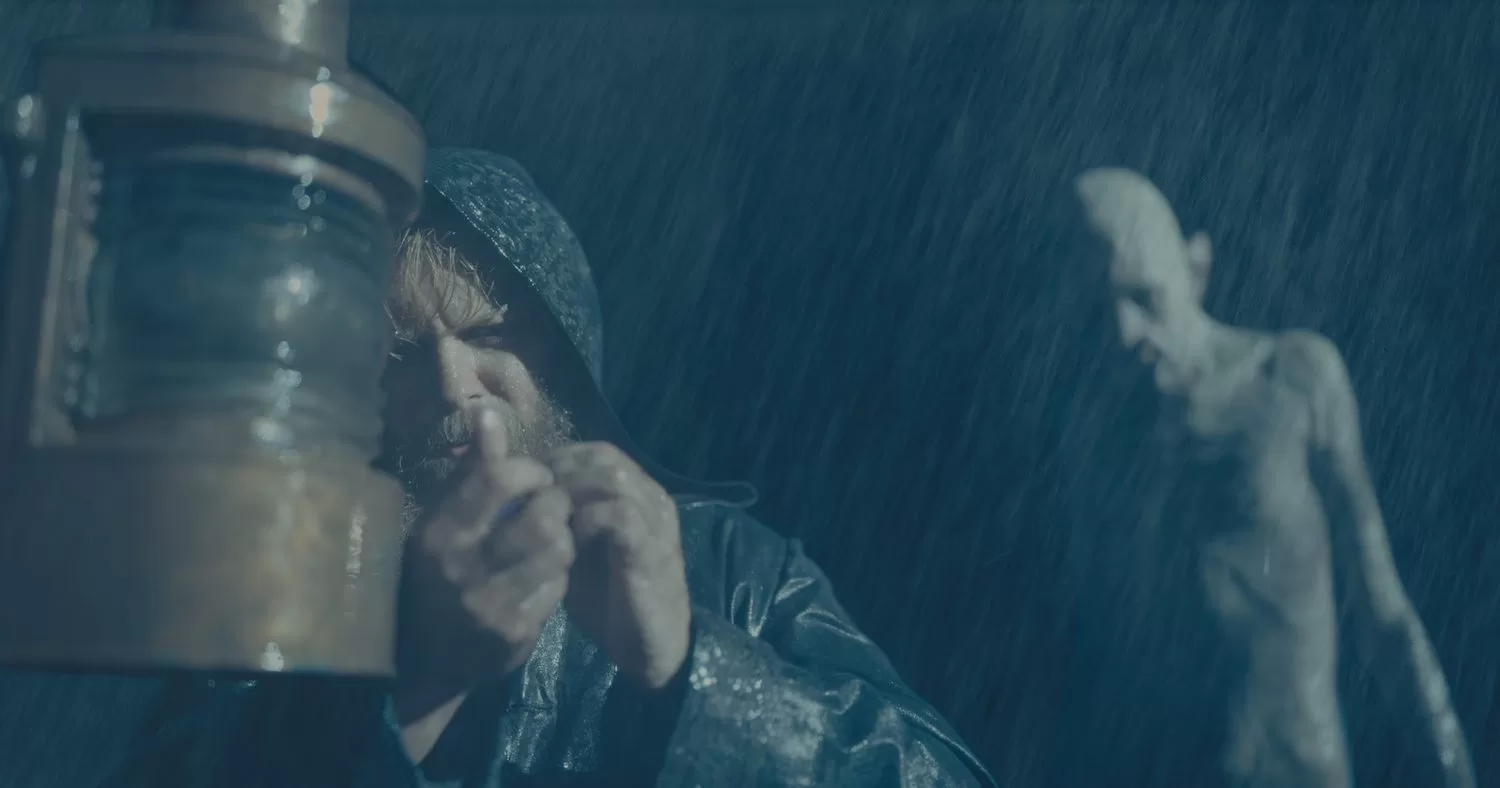
Øvredal follows the monster movie playbook of showing the monster as little as possible, which makes the few times we see Dracula in all his Nosferatu glory have that much more impact. Javier Botet continues to thrive in these roles, and he gives the creature a bit of majesty but more of a vicious bestiality as a being consumed by hunger. I would have preferred that he never speak at all, but at least when he does, it’s almost unintelligible, the hissing of a creature imitating human speech. I love this portrayal of Dracula as an unknowable monster, and I love the humans’ slow but sure realization that they are dealing with something beyond their understanding. It’s all very classic stuff, and I get why some people may feel like it doesn’t have a lot to offer, but honestly I found it such a refreshing throwback.
And Øvredal keys in on the emotions of the character relationships to make the deaths hurt more, especially ones where crew members are turned. (It was impossible for me not to watch this as an adaptation of Return of the Obra Dinn where every cause of death was “BITTEN by DRACULA.”)
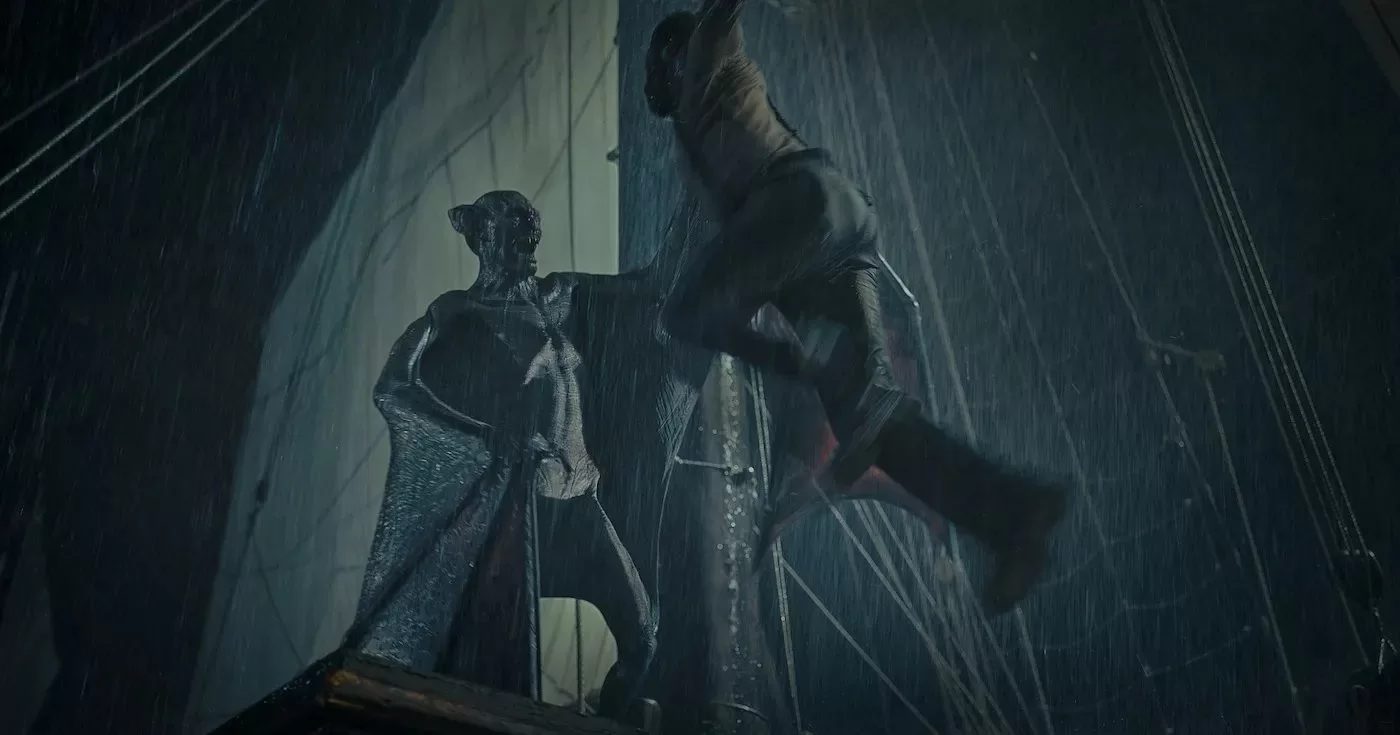
As the film approaches the climax, the stakes, so to speak, may seem manufactured given that this is not Once Upon a Time…in Transylvania so Dracula has to survive to be in the rest of the book. But even if we know everyone’s going to die, there’s a satisfaction in knowing they’re going to go out fighting, and the film affords them all their Moments. In the grand scheme of this story, they are indeed inconsequential, and that is tragic, but that’s how it goes.
I’m not entirely sure what other people were hoping this movie would be, but I liked that it largely stuck to its guns and didn’t try to twist and subvert everything we thought we knew about Dracula and the events aboard the Demeter. It faithfully recreated the feeling that Stoker evokes in the text of men mysteriously dying and then discovering that there’s something abominable on the boat that you have no idea how to fight, and you’re just fucked. To me, that’s a solid horror movie!
